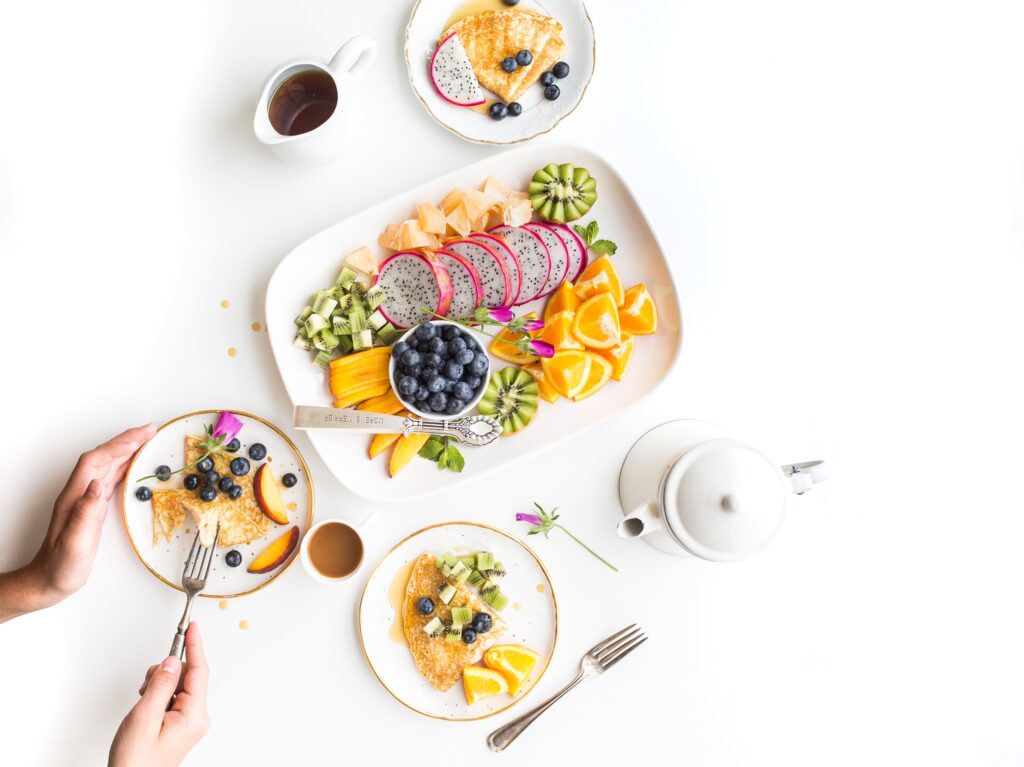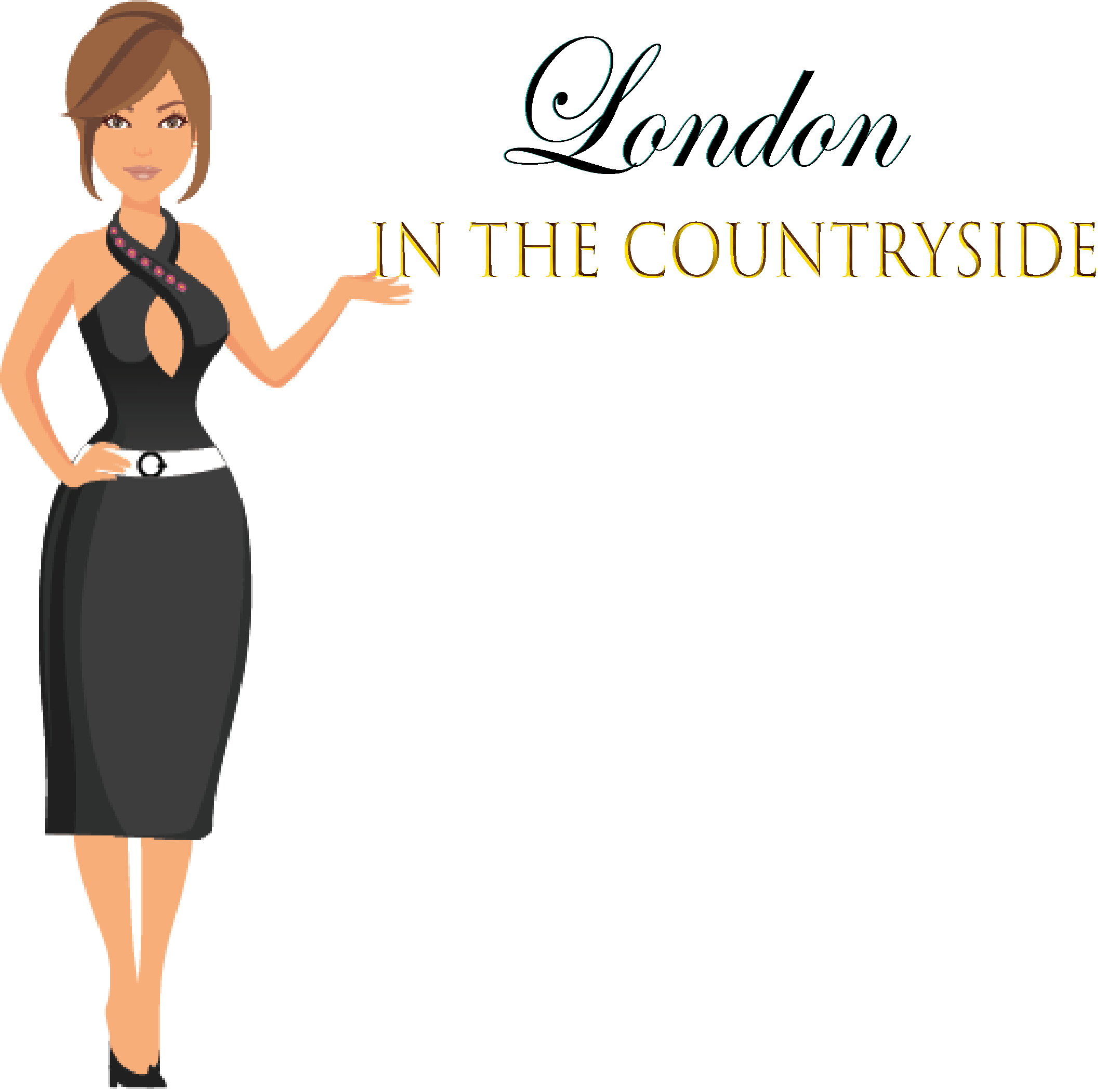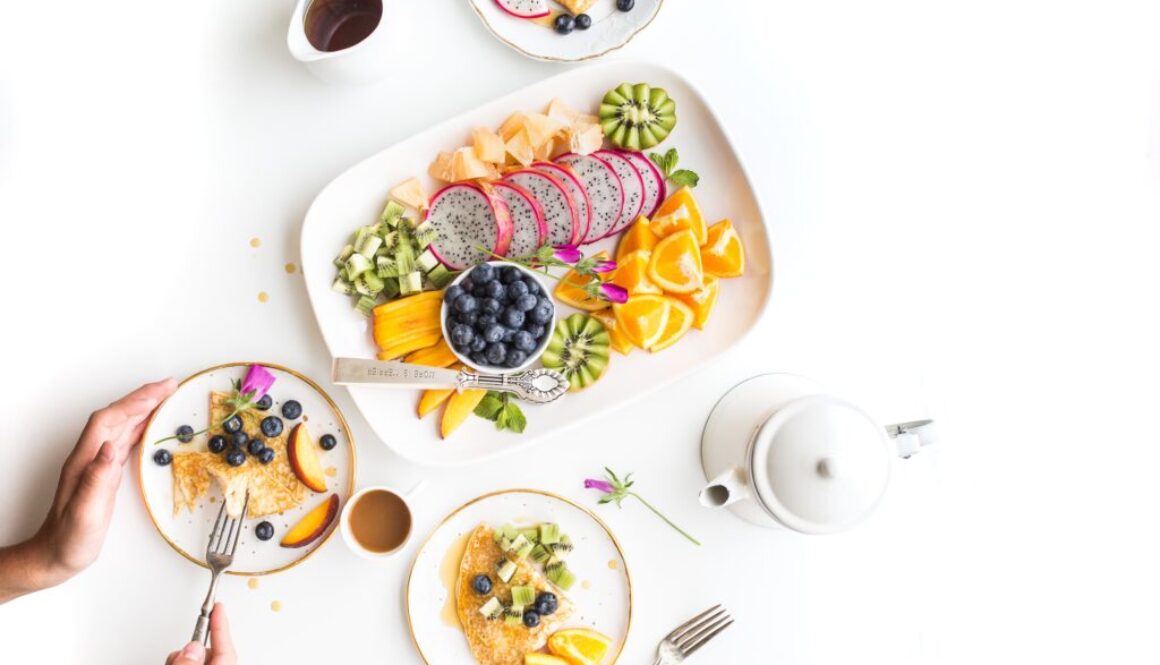Healthy Eating During Pregnancy

Healthy Eating
Taking care of your body by eating healthy and doing some light exercise is one the best ways of ensuring that your unborn baby is off to a healthy start.
Eating a variety of foods and maintaining a balanced diet is essential for your body during pregnancy and also for your unborn baby as the nutrients will help them to develop and grow.
The recommended calorie intake you will need during pregnancy will depend on your BMI (Body Mass Index). This is calculated using your personal height and weight.
If your BMI is 19 or under (underweight) you should be increasing your calorie intake, however if you BMI is 25 (overweight) or 30 (obese) you should discuss the calorie intake with your midwife at your antenatal appointments or with a doctor as it may be advised that you should reduce your calorie intake If you had a normal BMI before pregnancy you should be aiming to eat around 2,000 calories a day during the first and second trimesters. In the third trimester this should increase to around 2,200 calories a day.
Although you will need to increase you calorie intake during pregnancy to ensure that your baby is getting all of the nutrients that it needs to grow and develop, you should not need to do so until after the first six months. It is not true that you should be ‘eating for two’ even if you are expecting multiple babies. You will need to increase you calorie intake by 200calories a day during the third trimester. If you are expecting multiple babies it is recommended that you should eat an extra 300 calories per day per baby.
Maintaining a healthy diet is beneficial for your baby as it can increase yours babies chances of being born with a healthy birth weight. In addition it can also boost your baby’s brain development and decrease the risk of certain birth defects.
A healthy diet will not only help you to stay healthy physically it will also benefit you emotionally as it can stabilise your hormones and mood swings. Consuming a balanced diet can help to reduce common difficulties that women often suffer during pregnancy such as morning sickness, constipation and fatigue common.
Eating a balance diet reduces morning sickness, constipation and fatigue. It will help you to reduce the occurrence of pregnancy complications such as anaemia, and preeclampsia. Likewise, it can also help to reduce the occurrence of pregnancy complications such anaemia and preeclampsia. Moreover it can assist you in having speedier postpartum recovery as your body will heal and recover faster and you should have less weight to loose after you have given birth.
A balanced diet should consist of a mix of:
Protein – eggs, fish, meat, nuts, pulses.
Calcium – Cheese, Milk, Yogurts.
Whole Grain carbohydrates – bread, pasta and rice.
Fruits and Vegetables (At least five portions a day.)
Drink plenty of water.
Eating a balanced diet doesn’t necessarily mean that you will have to give up all of your favourite foods. By changing the amounts of different foods that you eat so that your diet is varied should give you the right balance and keep you fuller for longer as well as providing you and your baby a range of vitamins and minerals.
Preparing food is just as important during pregnancy to prevent any illness and poising. Some foods will need to be cooked very well all of the way through, such as poultry, eggs, and meat including beef and lamb. Ensure there is no red meat or juices when eating meat this is due to the potential risk of toxoplasmosis. You should also be cautious when consuming cold cured meats if pregnant. This is because many cold meats such as chorizo, ham, salami, and pepperoni are not cooked; they are only cured and fermented. This means that could contain toxoplasmosis causing parasites.
Make sure any foods that may have soil on them such as salads, fruit and vegetables are thoroughly washed to remove all of the soil or viable dirt as it may contain toxoplasma which could harm your unborn baby.

